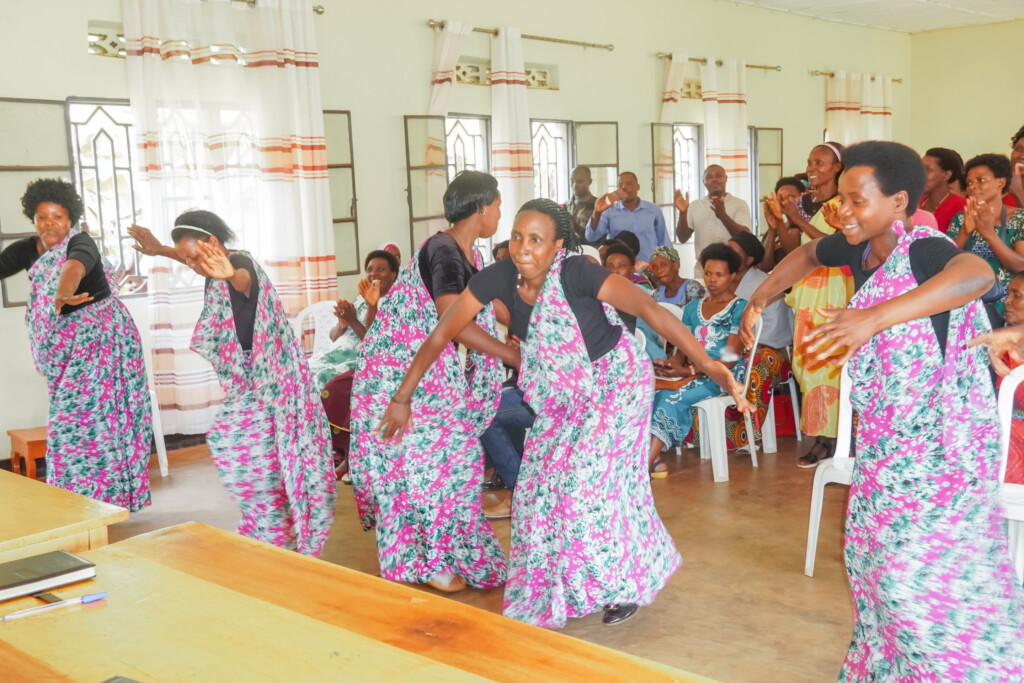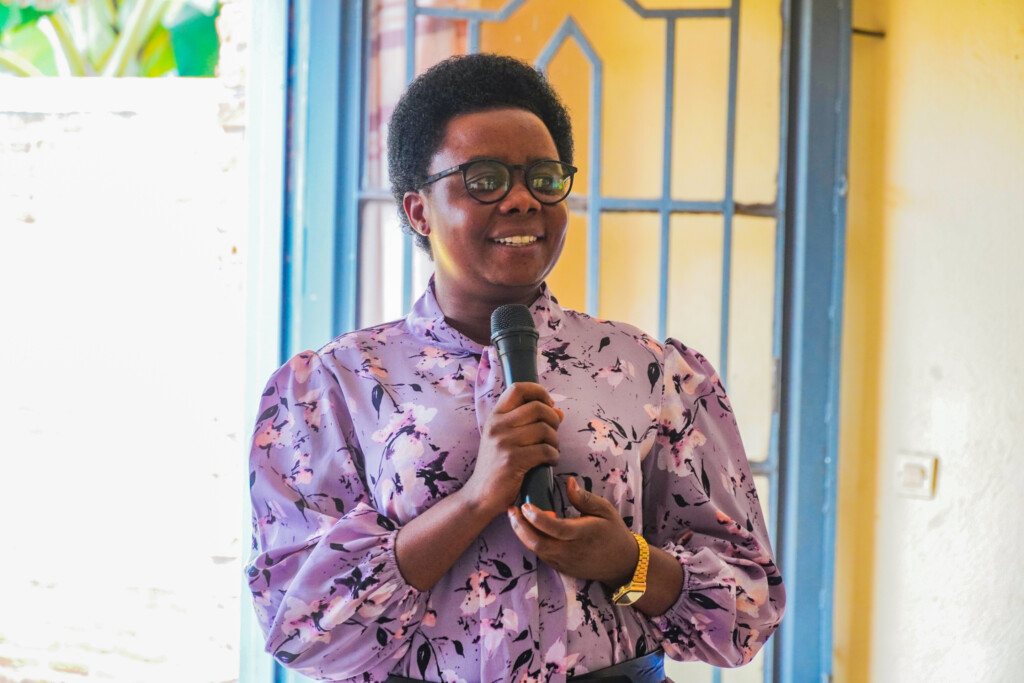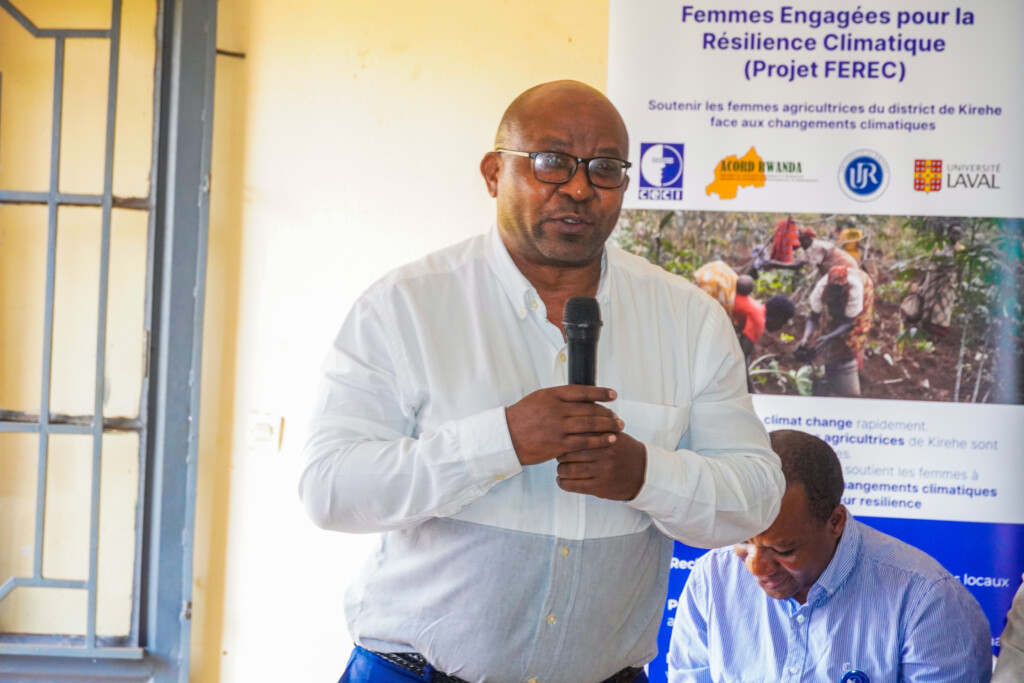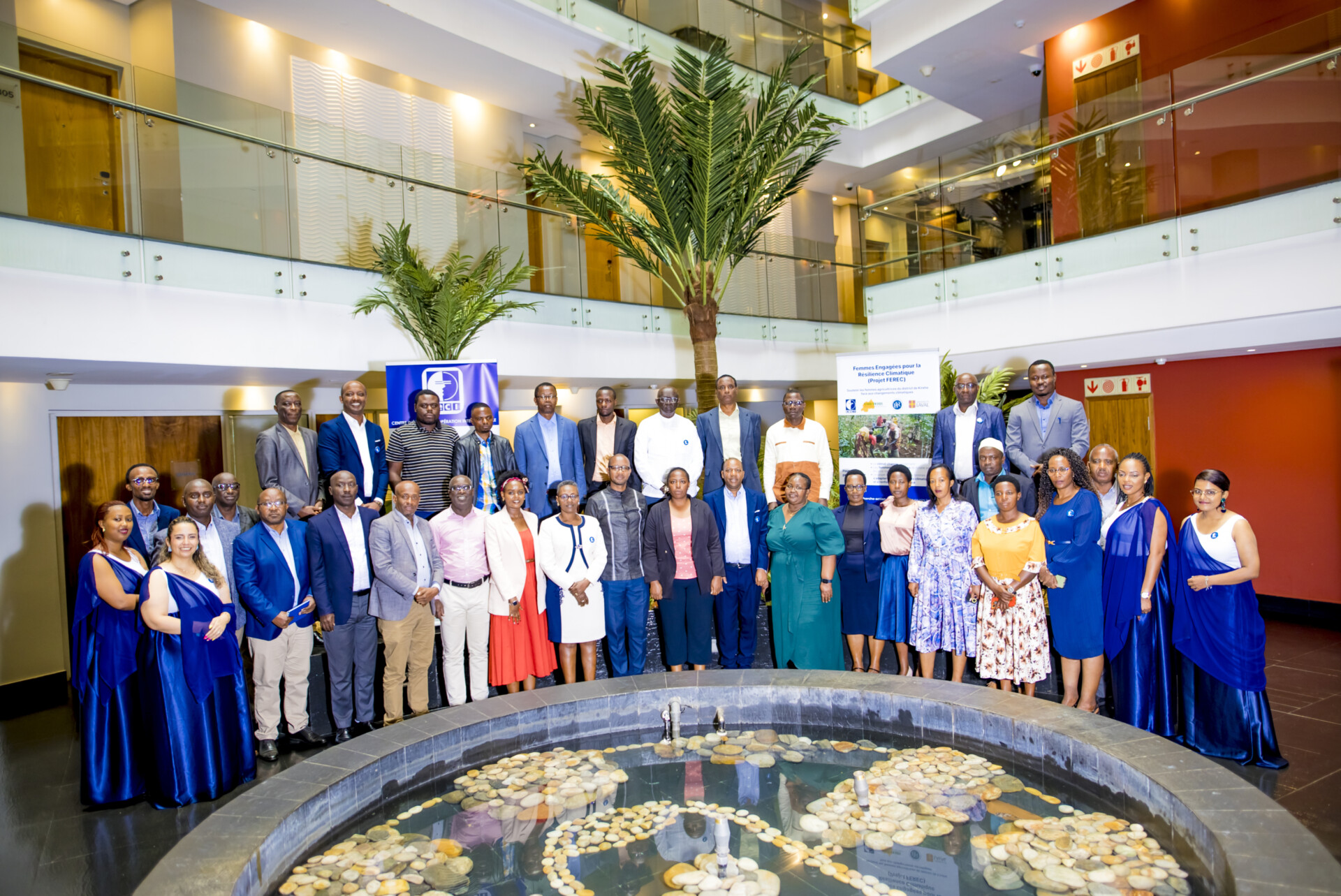
News
Official launch of the FEREC project: An innovative response to climate resilience led by women in Kirehe
July 28, 2025The Centre for Study and International Cooperation (CECI) Rwanda officially launched the FEREC project – Women Engaged for Climate Resilience – on July 11, 2025, at the Ubumwe Grande Hotel in Kigali. This ambitious initiative, supported by the Government of Québec through the International Climate Cooperation Program (ICCP), aims to strengthen climate resilience among rural women in the Gahara sector, Kirehe district, a zone vulnerable to climate hazards such as drought and erosion.
A project by and for women
Led by CECI Rwanda in partnership with ACORD Rwanda, the University of Rwanda, and Laval University (Canada), the FEREC project spans three years (2025–2028). It targets women farmers, key pillars of the local economy, by providing tools and knowledge to address the impacts of climate change. The project aims to reach 2,000 households and offers concrete solutions such as regenerative agriculture, creation of agroforestry nurseries, solar irrigation, clean energy use, as well as training in women’s leadership.
As highlighted by Ms. Olive ZIMURINDA INGABIRE, Country Director of CECI Rwanda, “This project is part of a broader vision of climate justice and social transformation, where women are no longer merely victims of the climate but agents of change.”
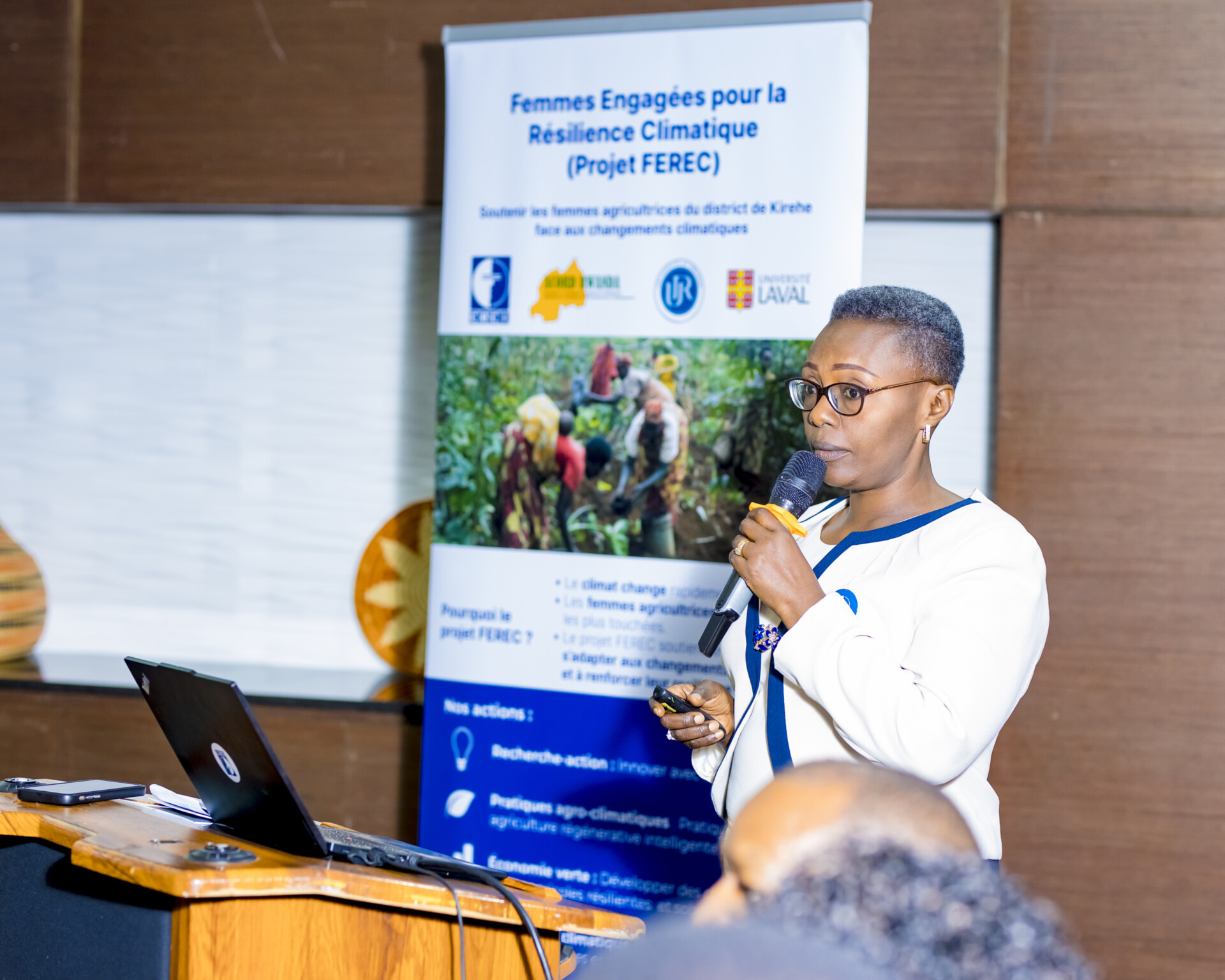
A ceremony marked by commitment
The launch ceremony gathered 44 participants, including representatives from ministries, NGOs, researchers, implementing partners, and project participants. After a detailed presentation of the project by Mr. Jean Marie Vianney SENTARU, FEREC project coordinator, participants exchanged on climate issues in the Kirehe region.
In his speech, Mr. Bruno RANGIRA, Mayor of Kirehe district, expressed his gratitude: “We thank CECI Rwanda for choosing our district, severely affected by drought and floods. Women represent the majority of our agricultural workforce. This project will accelerate our fight against poverty and fits perfectly with ongoing initiatives.”
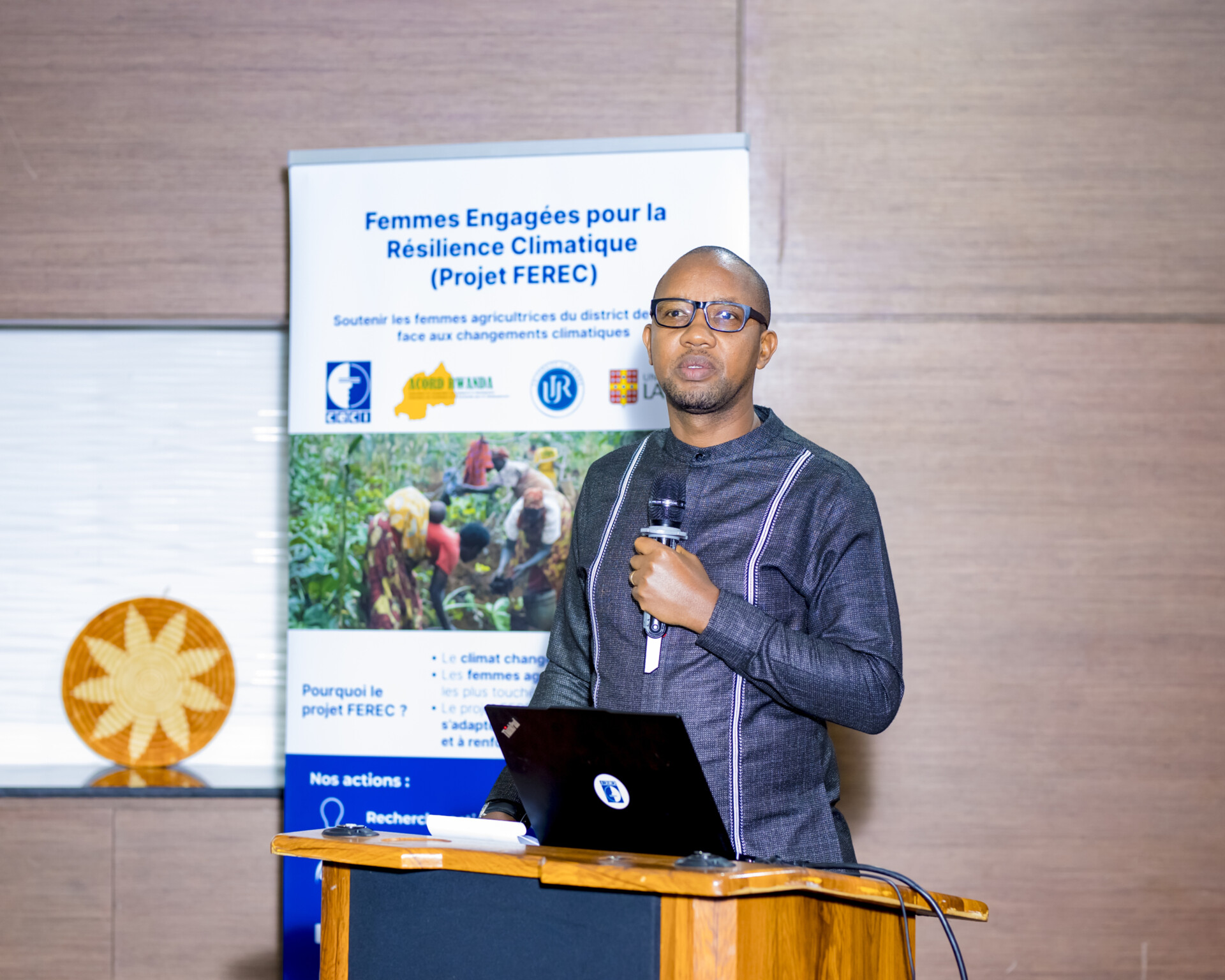
Voices of project participants
Poignant testimonies from members of the COAIGA cooperative illustrated the project’s relevance. Ms. Sephora NIYONSABA, Secretary of the COAIGA Cooperative, said: “Before, we thought planting trees or making briquettes was only for men. This project shows us that we have a central role to play in the fight against climate change.”
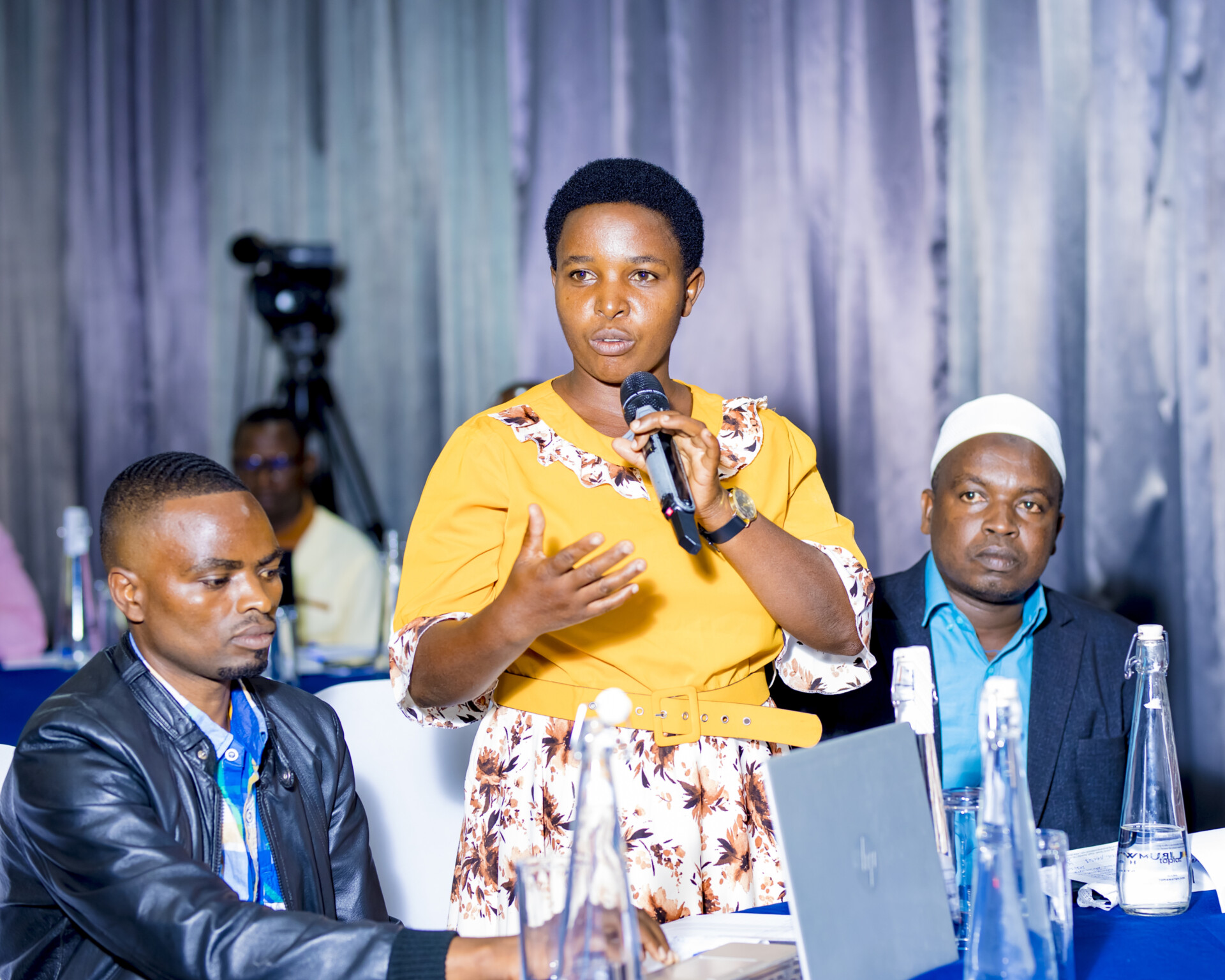
Aligned with national and international priorities
The FEREC project is aligned with the National Transformation Strategy (NST2), particularly its goals of sustainable resource management, greenhouse gas emissions reduction, and strengthening agricultural resilience. It also contributes to several Sustainable Development Goals (SDGs), notably SDG 5 (gender equality), SDG 13 (climate action), and SDG 15 (life on land).
Ms. Alice MUKAMUGEMA, Director General in charge of the agricultural value chain at MINAGRI (Ministry of Agriculture and Animal Resources), praised this complementarity: “The project is in line with the PSTA 5 (Strategic Plan for Agricultural Transformation). It will contribute to fruit tree planting, food security, and strengthening the role of women in sustainable development. The ministry is fully committed to supporting the FEREC project.”
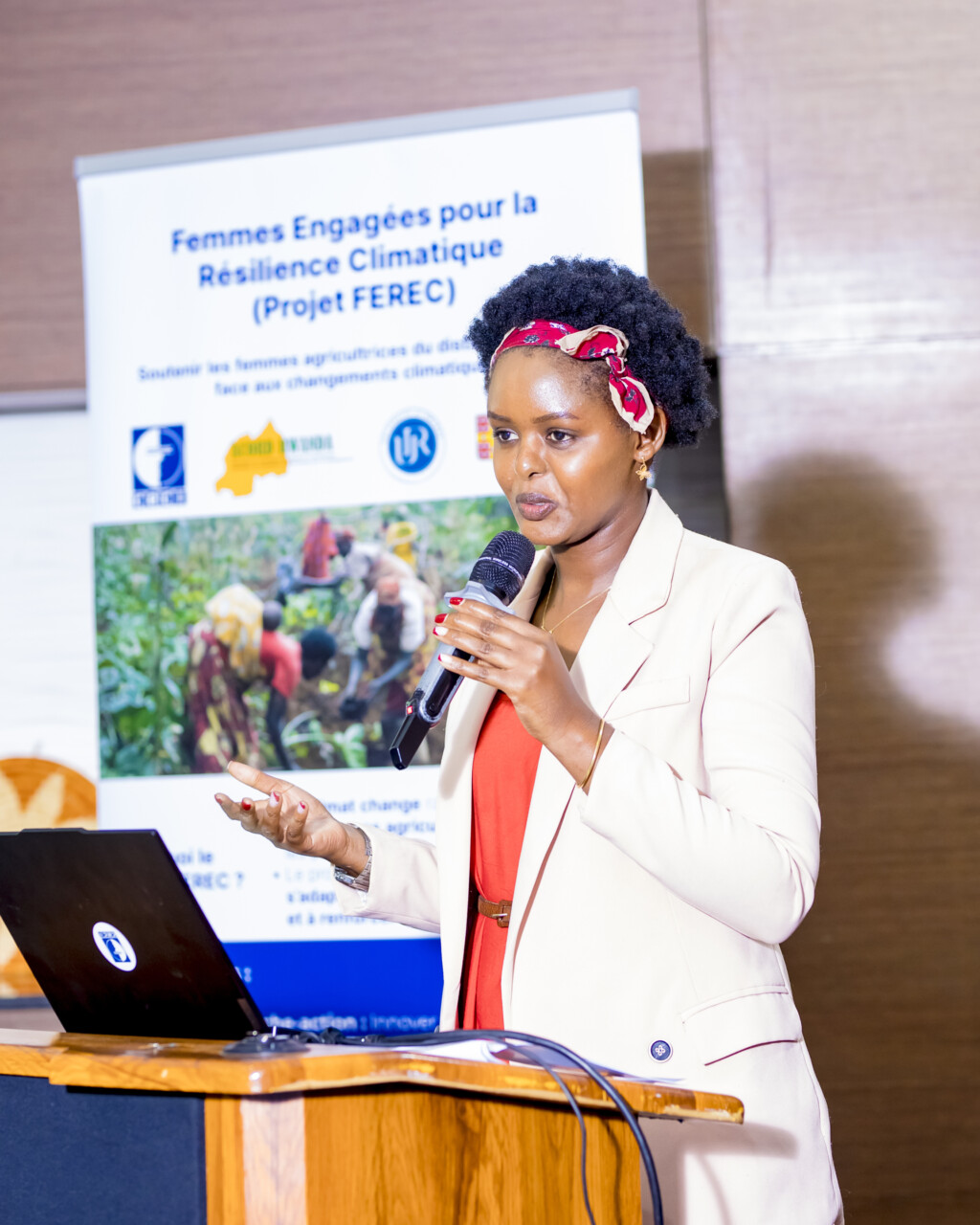
Local anchoring in Gahara: an inspiring community launch
A few days after the national launch, a local ceremony was held on July 17, 2025, in the Rubimba cell, Gahara sector, at the heart of the project’s intervention area. Gathering 122 participants, with a majority of women, this event helped root the project within the community.
Ms. Janvière Mukandayisenga, Vice-Mayor in charge of Social Affairs of Kirehe district, reaffirmed the importance of this project for rural women: “The Gahara sector is often affected by climate hazards. This project is an appropriate response. Seize this opportunity, value your harvests, plant trees, and generate income.”
The local launch also highlighted the enthusiasm of community partners and the strong engagement of COAIGA cooperative members. Mr. Vedaste Mwenende, representative of ACORD Rwanda, emphasized the growing ownership of the project by the women in the sector. Initiatives such as soybean cultivation, agro-food processing, and the establishment of agroforestry nurseries were warmly welcomed.
This confirms the stakeholders’ commitment to building lasting climate resilience based on the knowledge and involvement of local communities.
A collective dynamic for sustainable transformation
Beyond its environmental scope, the FEREC project is part of a social and economic transformation dynamic. Through the integration of community activities like ecological Umuganda, agroecological field training, and the development of eco-friendly post-harvest technologies, it promises to generate lasting impact.
The ceremony concluded with a note of commitment and collaboration, calling on partners, local communities, and institutions to support the project’s implementation.
Ultimately, the FEREC project launch marks a major milestone in Rwanda’s commitment to inclusive climate resilience, led by women. This project is not only a response to environmental challenges but also a vector for empowerment, social justice, and local innovation. The next steps will include the deployment of trainings, participatory impact monitoring, and the promotion of results among communities and decision-makers.
